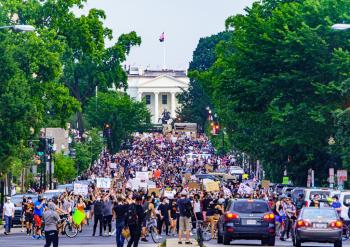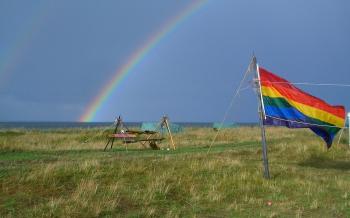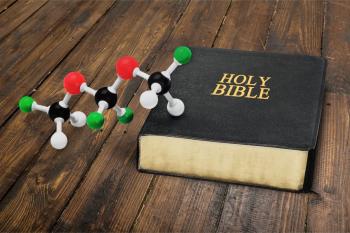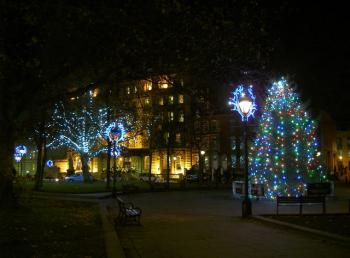Users Who Spiked
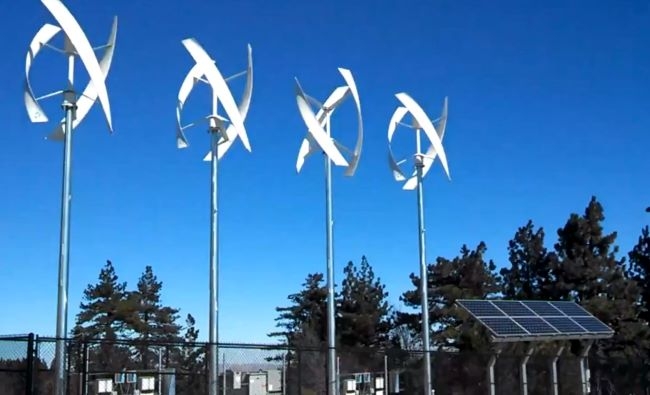
WAS OIL WAS A FORBIDDEN FRUIT?
Private Notes
Private Notes
Notes
The Green New Deal (GND) could put us back on track with the Green Original Deal (GOD)
Where would we be without oil and coal? Would we still heat our homes and cook our food with wood?
How would our cars run? How big or fast would our ships and trains be? What parts of the world would still be unsettled, or undiscovered?
What would replace the oils, fuels, tar, and lubricants that come from crude oil? What about lipstick and nail polish; crayons, synthetic rubber, or chewing gum?
What if we never created plastic?
Without oil, we could struggle to achieve some things we now take for granted.
But what if that is exactly the world God intended us to live in?
Everything we needed was supposed to be in Eden
The Book of Genesis describes the creation of our world by God. He returned light to the earth, the waters receded, life returned to the fields and forests and oceans.
Finally, on the sixth day, God created man and woman and put them in charge of things.
In Genesis 1:29, God told Adam and Eve, "I give you every seed-bearing plant on the face of the earth and every tree that has fruit with seed in it. They will be yours for food. And to all the (fish and animals)… I give every green plant for food."
They were set. Life could exist indefinitely in the world that God made roughly 6,000 years ago.
God's perfect plan went askew as soon as a snake-in-the-grass pulled off the world's first scam. When Eve and Adam ate that fruit, they did indeed gain all sorts of knowledge, which probably included the wisdom to think twice next time a deal sounds too good to be true.
Buying the snake oil
Things weren't all bad. God loved his creation. He showed Eve and Adam how to make clothes and thankfully, He introduced humanity to the use of animals as food later in Genesis.
But overall, life would be much more difficult after the first couple broke their contract with God.
People had to farm in deserts and rock-filled mountains. Weather became a thing, so we needed shelters and more clothing. Knowledge wrought pride and hatred and the societal ills that go with them.
But, it wasn't all bad. We created items of lasting beauty to go along with tools and devices that would shape history and advance civilization.
By the middle of the 19th century, modern life included water spigots and drains, more efficient home heating methods, steamboats and trains, and much more.
We discovered coal in the mountains and used it made steam power way more efficient.
Then Edwin L Drake figured out how to get oil out of the ground in Pennsylvania. The things we could do with oil prompted many prominent Christian ministers to describe "black gold" as a gift from God.
Indeed, things got brighter right away. Kerosene was the first fuel gleaned from the oil. It provided lamps with a plentiful and inexpensive replacement for whale oil.
Various lubricants and cleaners followed before gasoline fueled the auto industry and clean natural gas heated homes. Modern machines turned the United States into an industrial power.
Farming was easier with mechanized tools and vehicles. We moved bigger boats and trains faster. Then we lifted people into the skies and beyond.
Plastic further revolutionized the world. It isn't just packaging material. It is part of almost every modern device used today, including your computer, phone, television, car, medicines, and more.
Are we naked again?
Just like Adam and Eve discovered knowledge had a downside, the human race is realizing how exposed we are to the by-products of our beloved oil.
Fossil fuels and the pollution they create introduced many illnesses for humans to suffer. The environment is irreversibly damaged in much of the world. Wars are fought and poverty is exacerbated.
Scientists leave little doubt that fossil fuels and the habits of man accelerate global warming which brought on the current wave of species extinctions. Thousands of plants and animals are permanently lost.
And just like the one who convinced the guardians of Eden the benefits of knowledge would far outweigh the risks of God's anger, there are still those who would convince us coal and oil are better than all other options.
These are the same snakes in the grass who told us cigarettes weren't dangerous or addictive. They are the same snakes who say if we make rich people richer, poor people will get rich, too.
These are the kind of people who convince fellow Americans to cut 20 years off their life expectancy to pull coal out of dusty and hazardous caves, citing patriotism and honor years after we found enough oil and gas to replace coal everywhere.
These snakes in the grass would send thousands of American children to fight halfway around the world to keep oil flowing across the ocean, five decades after scientists started espousing alternative energy sources as the clean and safe future of the planet.
It's someone who would tell fellow Americans that windmills cause cancer or that health and safety regulations are less important than corporate profits.
That is not God talking.
Why did God lead Moses to Israel?
Golda Meir once playfully lamented how Moses led the Jews around the desert for forty years before settling them in the only place in the Middle East without oil.
If God guided the chosen people to an oil-free zone, maybe we weren't meant to have it. Indeed, almost every country that has discovered oil found itself locked in bitter wars and strife ever since.
Things were lean, but promising, in the United States in the 1850s. Poverty and crime were rampant, and the slavery debate divided the nation.
On the other hand, the telegraph and railroads were creating opportunities across the states. The war with Mexico ended, and the country extended to California. There was enough upside to see a rise in banking and finance investment. Wells Fargo and Lehmann Brothers were among the new players.
But Edwin Drake was out of money and owed everyone he knew. What's more, he and his band of oil explorers were laughingstocks. They dug 65 feet into the rocky Pennsylvania mountains without a single oily drop.
Drake was nearing the end of his rope when he returned to the drilling site one morning to find oil leaching from the soil around their rig.
Was it Divine Providence that led Drake to discover oil in Pennsylvania? Or were things tough enough that he made a deal with the devil?
Solar and wind are not new or progressive ideas
Back in the seventh grade, I first heard about the benefits of solar power. That was 1974, or 45 years ago.
In high school, I learned about the dangers of pollution and how fossil-fuel alternatives like nuclear, wind and solar energy could save millions of people.
Of course, fossil fuels had something those alternatives did not. They had lots of very rich and very greedy people relying on them to get richer.
Nuclear was a relatively safe option, but an accident at Three Mile Island almost doomed the industry into oblivion. Anti-nuke powers kept the nuclear revolution at bay.
Solar and wind never got off the ground. They were ridiculed as "hippie" fuels and hippies were not regarded as forward-thinking businessmen.
But the industry had to do something to appease legislators who were getting tired of smoggy cities. Detroit developed the catalytic converter and other devices that limited exhaust to a degree.
Clean air and pollution standards were passed, but changes were always minimal enough that car manufacturers and factories had a shot at complying without expensive upgrades.
Someone invented clean-air credits. That meant that a factory spewing poison in the air could partner with a more responsible factory and take credit for their low emissions.
Auto industry executives responded to historic gasoline shortages and rising prices by manufacturing smaller cars. They proclaimed it as a patriotic sacrifice instead of the forced response to the diminishing sales of gas guzzlers.
Even with today's widespread discussions of global warming, the industry is pushing big pickups and SUVs again.
Choking on the fruit
The richest people and companies in America will do anything to maximize profits. There is no reason to save the environment or fellow citizens unless there is money to be made from it.
Waves of lobbyists and lawyers fight any attempt to limit or impede the fossil fuel industry or businesses relying on the old fuels.
Fracking is hailed as a nation-saving discovery even while the resulting earthquakes, tainted water, and cancers upset livelihoods.
Big business and government don't seem bothered that asthma and cancer rates continue to rise across the nation. The pharmaceutical companies have to make a profit, too.
Plastic is out of control, but there are legislators who insist recycling alone can solve the waste issue. This despite the plastic islands floating in our oceans and rivers, choking out life and showing up in our own food.
Is there a Godly response?
If we never discovered oil or coal, human ingenuity would have made significant strides elsewhere.
We are selling ourselves short if we think we'd be living as our ancestors lived in the 1850s. The effort that went into oil production would have gone into electric, wind, solar or something else.
Cars might be a bit slower, but we'd have them. If we never had plastic bags, we'd use another method to bring groceries home.
That's not to say we can be oil-products-free any time soon. Oil is embedded in our lives. But we need to stop treating the industry like a god and promote competitive products for fuel, containers, and more.
Coal should be eliminated today. Kerosene was supposed to be a coal alternative. Greed and fear of change kept coal in play even with gasoline, diesel, and electricity available.
Pro-coal lobbyists will paint a picture of coal miners starving in the years ahead, unable to find jobs. But you know what? I've been to West Virginia and Kentucky. They have loads of sun and wind.
If we develop energy farms there, local people can be hired and trained in those industries. Young people can advance themselves better than they ever could in coal. Mitigation of the mines and factories will keep any diehards employed for now.
In the worst-case scenario, I believe most Americans wouldn't mind paying a former coal-miners benefits tax if it meant the whole country was getting healthier.
Green Original Deal versus the Green New Deal
Although progressive environmentalists want rapid change, the Green New Deal doesn't call for starting over. It looks to scale back or replace fossil fuels where we can.
"Going Green" does not mean we can't use a diesel truck to haul materials to a new windmill. It also doesn't mean we can't use plastic ties to secure wires together if that is the best method.
It does mean we should think twice when making choices regarding driving, heating, or anything using oil-based products and fuels.
Several major companies greatly reduced plastics and others already switched to alternative energy. None are losing money on the deal.
New construction projects use energy-saving and "green" technology to varying degrees. Almost every major commercial or healthcare project uses solar panels to replace or supplement their energy needs.
The two newest hospitals in Guatemala, a place some Americans might consider third-world, are completely solar, independent of any outside energy sources.
It can be done and it can be as profitable as it is healthy and safer for us.
Fear tactics
The vast majority of Americans haven't read the "Green New Deal" presented by several government representatives.
That is what fossil fuel lobbyists (and the politicians they pay off) are counting on when they dramatically rant about eliminating airplanes and hamburgers.
Neither of those is proposed or even discussed in the document.
What is discussed is how alternate fuels and carbon reduction would lead to massive economic and health gains throughout the country.
Fossil fuels proponents will detail- and probably exaggerate- the jobs and income they might lose. But the energy, jobs, revenues, and savings will come; and more of it will go to you.
Healthier citizens, wealthier citizens, and a longer life for the United States and the earth as we know it are the expectations laid out in the Green New Deal.
How can anyone- climate deniers, global warmth alarmists, or anyone in between- argue against a proposal that does all that?
It sounds like another Garden of Eden to me.
Comments
Please login to post comments on this story


















